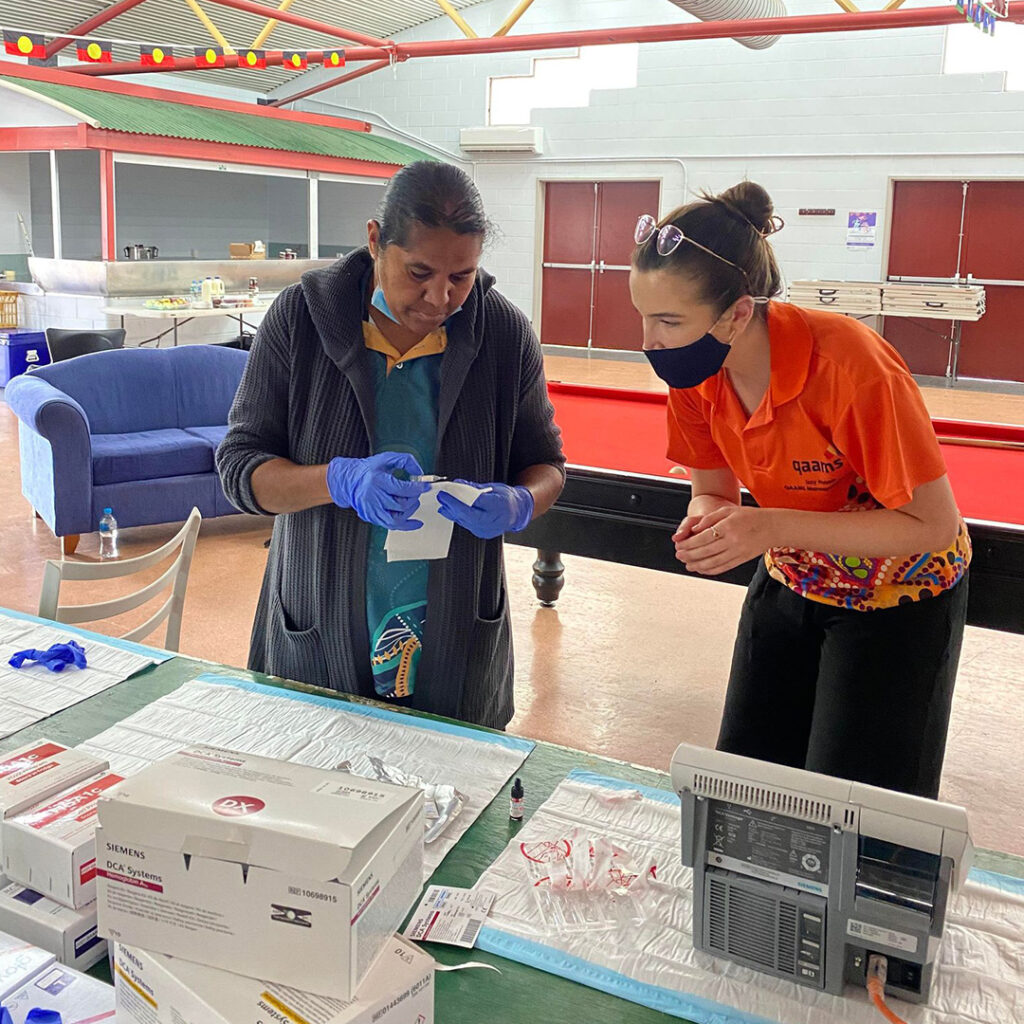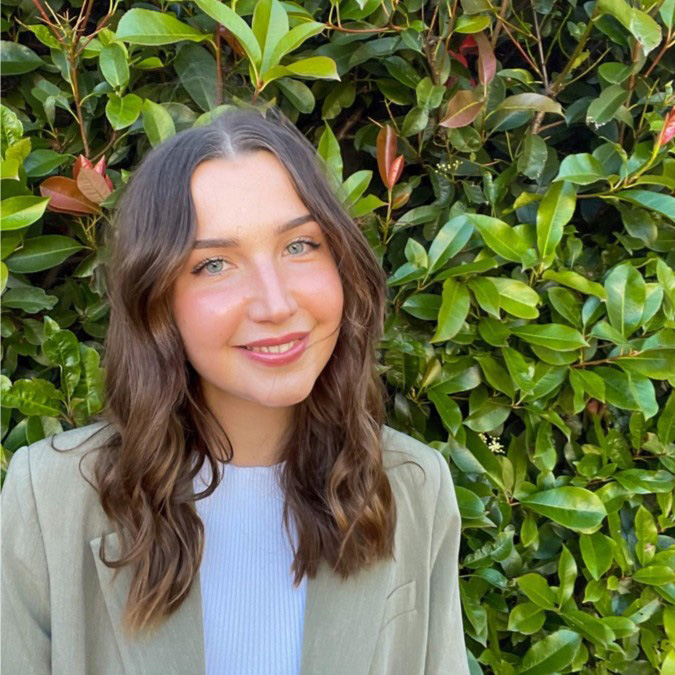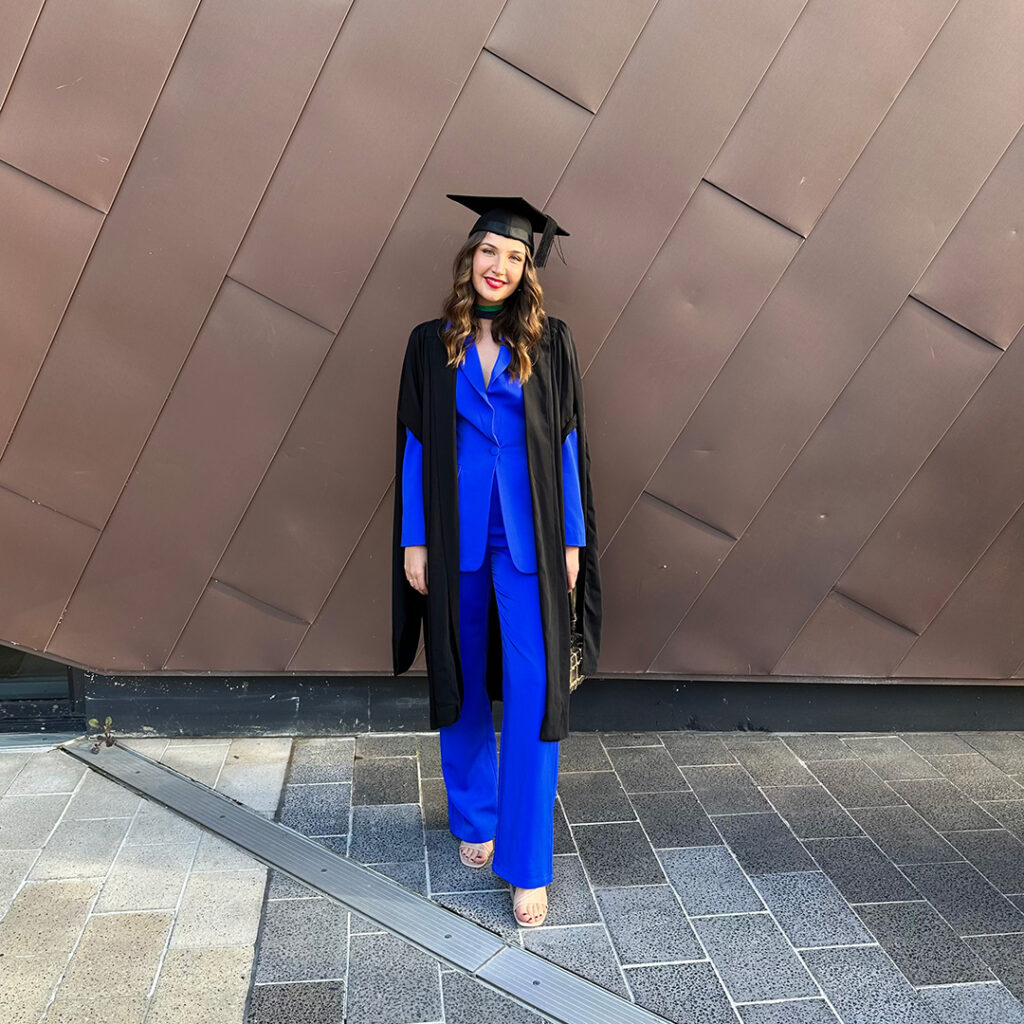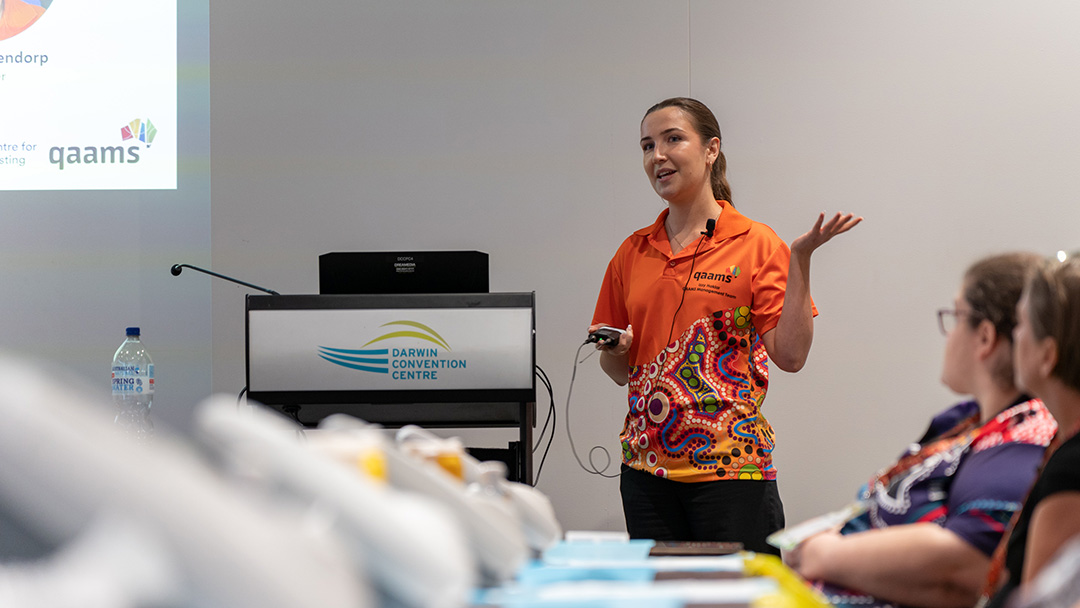Career Progression:
How has your education at Flinders University influenced your career choices and progression?

I landed my first role from an elective that I undertook in the final year of the Bachelor of Medical Science (Point-of-Care Testing: Application Management and Effectiveness), so you could say my education at Flinders directly influenced my career! For approximately three and a half years, I worked in point-of-care testing (POCT) at Flinders, firstly as a scientific assistant and then as a scientific officer. My work revolved around promoting and supporting the uptake and use of POCT, or rapid pathology testing, for chronic and infectious diseases in Aboriginal and Torres Strait Islander communities.
During this time, I developed an interest in all of the ‘upstream’ factors influencing health and wellbeing, and decided to go back and study a Master of Public Health (MPH). Fast forward a little, and I am now working at SAHMRI as the project coordinator for an Indigenous health research grant, which is focused on getting more First Nations people onto the active waitlist for kidney transplants.
Impact of Public Health Studies:
How have the skills and knowledge gained from your Master of Public Health degree been applied in your professional life?
So much of what I learnt in the MPH has been useful in my professional life, but two core topics really shaped how I approach my current work and think about social issues at large – First Nations Health and Wellbeing, and Social Determinants of Health and Wellbeing. Having a sound understanding of the enduring impacts of colonisation and the social determinants of health has enabled me to engage more effectively with Community, and develop programs that are responsive to context and need.
Can you provide examples of how the interdisciplinary focus of your studies has benefited your career?
I also undertook a research unit in the final year of the MPH, where I gained experience in applying for research ethics, developing surveys, qualitative analysis, and writing manuscripts. All of this has been extremely useful in my current role.
 Mentorship and Guidance:
Mentorship and Guidance:
You mentioned the invaluable mentorship from your supervisors. Could you elaborate on how this mentorship has shaped your professional development?
I was fortunate to have fantastic supervisors throughout the research component of my MPH. They were knowledgeable, approachable, and treated me as an equal which I valued deeply. During challenging times when I had to make important decisions about my study/career direction, they acted as a sounding board and provided me with invaluable guidance. Their support also extended well past the formal assessment phase of the project, through to the point of manuscript publication.
Are there any specific instances where the career guidance from Flinders made a significant impact on your decisions?
Seeing this process from start to finish was incredibly useful, and helped me to feel confident transitioning to my current position. It was evident that both my supervisors genuinely cared and were deeply committed to building the capacity of their students.
Global Applications:
Given the global focus of your studies, have you had the opportunity to work on international projects or collaborations? If so, could you share some details?
Whilst I haven’t had the opportunity to work on international projects, much of my work has involved collaborating nationally and travelling across Australia, which I feel very fortunate to have done at a young age. I would absolutely love the opportunity to work on international projects in future, however, I feel as though there is a great deal of important public health work in Australia that requires investment.
Future Aspirations:

What are your current professional goals and aspirations?
I’m not exactly sure how everything will pan out over the next few years – and that’s okay! Right now I’m enjoying the ride, and trying to focus my energy on expanding my professional network and skillset.
How do you see your career evolving in the next few years, especially in areas such as health education, health literacy, and women’s health issues?
I’m still passionate about health education and health literacy, particularly among culturally and linguistically diverse and marginalised groups. There’s been a big push for more preventative education around kidney disease in Aboriginal and Torres Strait Islander communities, so this is something I’m keen to explore in future.




 Mentorship and Guidance:
Mentorship and Guidance: